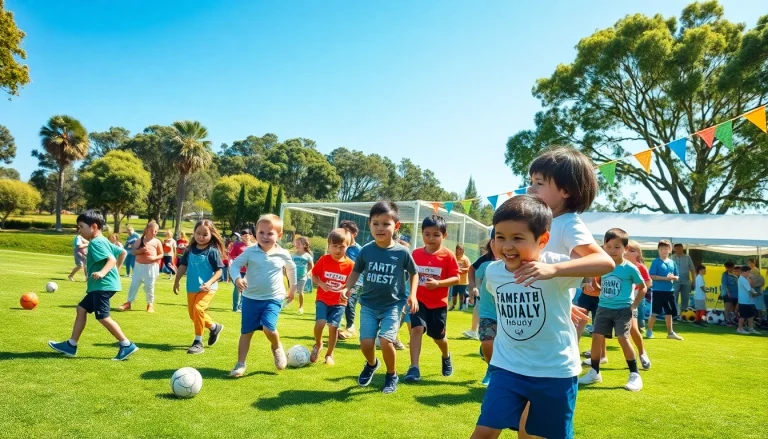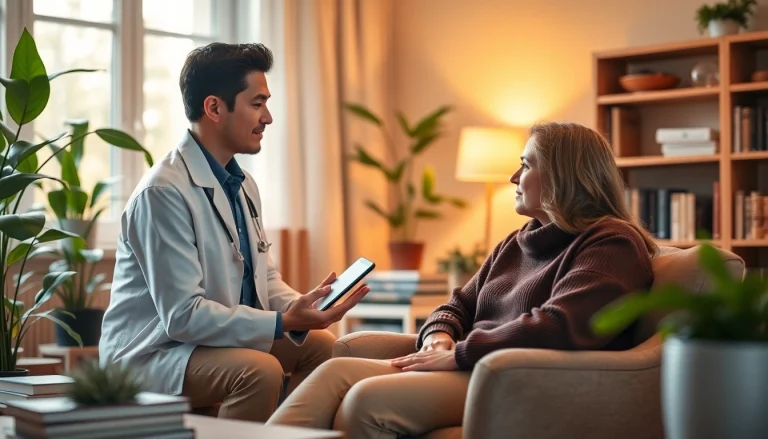
Understanding the Importance of Communication in Relationships
Effective communication plays a pivotal role in strengthening the bonds of companionship and intimacy between partners. It acts as a foundation for expressing feelings, needs, and thoughts, contributing to deeper understanding and connection. In any relationship, clear and authentic communication in relationships is essential. Without it, misunderstandings arise, conflicts escalate, and emotional distance increases.
Why Communication Matters in Relationships
Communication is the lifeblood of relationships; it facilitates trust, respect, and intimacy. When partners communicate openly and honestly, it sets a precedence for mutual support and understanding. Effective communication allows partners to express their needs and concerns, which aids in resolving conflicts and avoiding resentment that can develop when issues go unaddressed. Studies highlight that couples who engage in healthy communication report higher satisfaction and deeper emotional connections.
The Role of Active Listening in Effective Communication
Active listening is a crucial element of effective communication. It involves fully concentrating on what is being said, understanding the message, and responding thoughtfully. Active listening ensures that both partners feel heard and validated in their feelings. Key strategies for active listening include:
- Maintain eye contact to show attentiveness.
- Reflect back what you have heard to confirm understanding.
- Avoid interrupting, allowing the speaker to finish their thoughts.
- Show empathy by acknowledging feelings expressed by your partner.
Common Barriers to Communication in Relationships
Despite the importance of communication, many couples face barriers that hinder their ability to connect. These obstacles can include:
- Emotional blockages, such as fear of vulnerability or past traumas.
- Distractions from technology or external environments that interrupt dialogue.
- Different communication styles, leading to misunderstandings.
- Overgeneralizing or making assumptions about the partner’s feelings and thoughts.
Recognizing and addressing these barriers is essential for fostering a supportive communication environment in relationships.
Key Components of Effective Communication in Relationships
Open and Honest Dialogue
Open and honest dialogue is fundamental in building trust. It involves expressing thoughts, feelings, and concerns without fear of judgment. Couples should strive to create an environment where they can discuss anything without retribution. Setting aside time for regular check-ins can promote honest discussions about needs and feelings, enhancing relationship dynamics.
Nonverbal Communication Cues
Nonverbal communication can often convey more than spoken words. Body language, facial expressions, and tone of voice all play significant roles in how messages are interpreted. Being aware of these cues can enrich communication. For example:
- A warm smile can indicate openness and friendliness.
- Crossed arms may indicate defensiveness or lack of openness.
- Maintaining an open posture encourages a safe exchange of ideas.
Emotional Intelligence and Communication
Emotional intelligence, or the ability to identify and manage one’s own emotions and the emotions of others, is crucial in communication. This skill facilitates empathy and helps partners navigate emotional conversations. High emotional intelligence allows individuals to:
- Recognize triggers that may lead to conflict.
- Respond to emotional cues appropriately.
- Manage their emotions to approach conversations calmly.
Improving Communication Skills in Relationships
Practical Tips for Better Communication
Enhancing communication skills requires practice and intention. Here are several practical tips to consider:
- Use “I” statements to express feelings (“I feel…” instead of “You make me feel…”).
- Be clear and concise in expressing your thoughts to reduce misunderstandings.
- Allow time for reflection after important conversations, promoting deeper understanding.
Conflict Resolution Strategies
Conflict is inevitable in relationships, but how partners handle disagreements can determine their long-term success. Employing effective conflict resolution strategies is vital. Some helpful approaches include:
- Stay focused on the issue at hand, avoiding personal attacks.
- Take breaks as needed to cool off before resuming discussions.
- Seek compromise rather than trying to “win” the argument.
Creating a Safe Communication Environment
To foster effective communication, partners must create a safe space where both feel comfortable expressing themselves. This includes:
- Establishing rules for respectful dialogue.
- Encouraging honesty without fear of retribution.
- Regularly affirming each other’s value and emotions.
Signs of Healthy Communication in Relationships
Identifying Positive Communication Patterns
Recognizing healthy communication patterns is essential for sustaining a strong relationship. Signs of effective communication include:
- Regularly checking in with one another about feelings.
- Both partners feel valued and heard during discussions.
- Willingness to address concerns without defensiveness.
Transforming Negative Communication Habits
Negative communication habits can erode relationships over time. Identifying these patterns is the first step toward transformation. Some common negative habits to watch for include:
- Consistent sarcasm or ridicule during arguments.
- Stonewalling or withdrawing from discussions.
- Interrupting frequently or exhibiting poor listening skills.
Once identified, couples can work together to replace these behaviors with more constructive communication habits.
Role of Empathy in Communication
Empathy involves understanding and sharing the feelings of another person. It is a cornerstone of effective communication, allowing partners to connect on an emotional level. Techniques to enhance empathy in conversations include:
- Putting yourself in your partner’s shoes—consider their perspective during discussions.
- Acknowledging feelings even when you disagree with the viewpoint.
- Practicing patience during discussions, allowing your partner to express themselves freely.
Resources for Enhancing Communication in Relationships
Books and Articles on Communication
Several books and articles provide valuable insights and strategies for improving communication within relationships. Recommended readings may include:
- “Nonviolent Communication” by Marshall Rosenberg
- “The Seven Principles for Making Marriage Work” by John Gottman
Workshops and Counseling Options
Participating in workshops or counseling sessions focused on communication can provide numerous benefits. Tons of couples benefit from:
- Guided practice through role-playing exercises.
- Expert-led discussions on common communication issues.
- Personalized feedback to improve dialogue skills.
Online Resources and Support Groups
Online resources and support groups can create a sense of community among individuals seeking to improve their relationship skills. Websites and forums dedicated to relationship advice encompass:
- Interactive workshops and webinars on communication.
- Support groups where couples share experiences and strategies.






